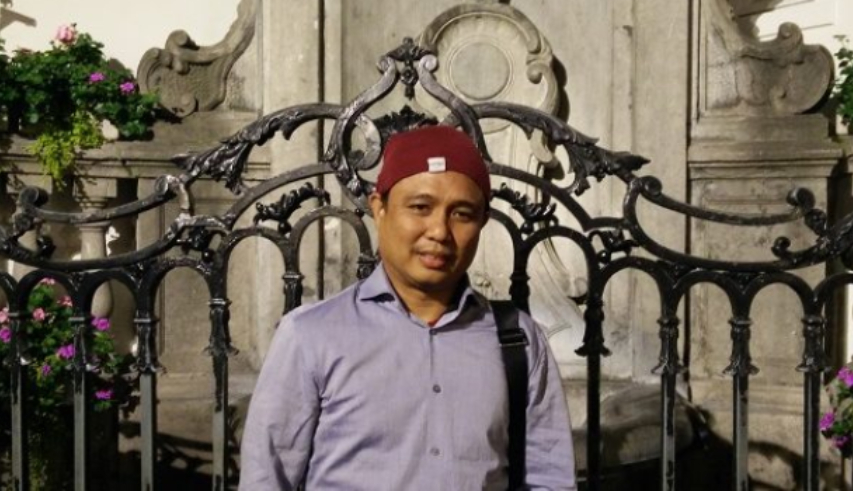
PII & Indonesian Engineers Code of Ethics; Its role in the Engineering Profession & National and State Life
by:
Ir. Habibie Razak, MM., IPM., ASEAN Engineer – Engineering Practitioner, PII Executive Director Period 2021-2024, Deputy Chair of the Energy and Electricity Sector of the Indonesian Engineers Association (PII) for the 2012 – 2015 Period
The Indonesian Engineers Association (PII) is an organization that was founded in 1952 by Mr. Ir. Djuanda Kartawidjaja and Mr. Ir. Rooseno Soeryohadikoesoemo in Bandung, is the second oldest professional organization in Indonesia after the Indonesian Doctors Association (IDI). In its history, PII has produced many scholars and professionals who have played important roles in our country in recent decades. PII carries out the engineer cadre process through a continuous development program (CPD) whose program content, apart from containing engineering knowledge (science and technology), also focuses on the introduction and strengthening of discussions regarding "engineering professional ethics". It is hoped that after becoming a member of PII, engineering graduates are required to uphold the ethics of the engineering profession as written in the Indonesian Engineer's Code of Ethics, Catur Karsa Sapta Dharma Engineer Indonesia*.
Catur karsa are 4 basic principles that Indonesian Engineers must have, including: (1) prioritizing nobility of mind, (2) using their knowledge and abilities for the benefit of human welfare, (3) working seriously for the benefit of society in accordance with with their duties and responsibilities and (4) increase competence and dignity based on professional engineering expertise. I read these 4 basic principles and concluded that Indonesian Engineers are required to be people who have integrity (noble character) and solely work to prioritize the interests of society and humanity over personal interests by constantly developing their engineering competencies and skills.

Sapta Dharma is 7 guidelines for the attitude and behavior of Engineers which are the embodiment of Catur Karsa, including: (1) prioritize safety, health and welfare of the community, (2) work in accordance with their competence, (3) only express opinions that can be justified , (4) avoiding conflicts of interest in their job responsibilities, (5) building a professional reputation based on their respective abilities, (6) upholding the honor and dignity of the profession and (7) developing professional abilities. If we read it more carefully, the substance of Sapta Dharma is the same and goes hand in hand with Catur Karsa, that Indonesian Engineers are required to uphold ethics and integrity in carrying out their duties and responsibilities wherever they work so that they can maintain the reputation of their profession from time to time. time. In my opinion, the main substance of the Engineer's code of ethics is none other than ethics and integrity. Whatever an engineer does, whether it is in the context of developing engineering competency or in order to build engineering work, it always refers to the principles of ethics and integrity.
The author further examines one of the guidelines for the attitude and behavior of engineers, namely building a professional reputation based on their respective abilities. Some descriptions of these attitudes and behaviors include: initiating the eradication of fraudulent and deceptive practices; do not offer, give, request or receive any form of treatment that violates applicable provisions and procedures, either in order to obtain a contract or to influence the evaluation process for work completion. These two descriptions explain how it is necessary for an engineer in carrying out engineering practices to follow applicable ethics and legal rules, on how the engineers should act. Engineers are required not to be tempted by any form of bribery or gratification or bribe in English terms. Engineers are even required to campaign against anti-fraud, anti-fraud including anti-bribery and various forms of corruption within the scope of the organization where they are, the scope of society, the nation and the state and even within the scope of international projects involving many countries.< /p>
The code of ethics for the engineering profession issued by the Indonesian Engineers Association is very relevant to the ideals of Pancasila and the 1945 Constitution, in line with the programs launched by anti-corruption institutions to reduce and even eradicate corrupt practices in Indonesian archipelago. Corruption, bribery and all other forms not only disrupt the sustainability of Indonesia's national development but can also be a bad and dishonorable example that we will pass on to future generations, so it is our collective duty that corruption and all its forms must be eradicated and burned to the ground from our homeland. beloved. This Engineer's Code of Ethics only applies to Indonesian Engineers, but if all members of the Indonesian Engineers Association (PII) who are then given the title of Engineers can set an example for other professions in Indonesia, I am sure this can be a positive precedent in leading this nation towards a more prosperous and dignified nation.
In 2011, the Government launched the MP3EI program with the aim of accelerating and expanding economic development through the development of eight (8) main programs covering the manufacturing, mining, agriculture, maritime, tourism, telecommunications, energy and development of national strategic area sectors. The targets you want to achieve are no joke. In 2011, our GDP was US$846 billion with a GDP per capita of US$3,495 and ranked Indonesia 16th in the world, so in 2025 Indonesia's GDP is estimated to reach US$4,000 billion with a GDP per capita of US$14,250 and is ranked 11th in the world. A further prediction is that in 2045, the 100th anniversary of Indonesia's independence, GDP is targeted to reach US$15,000 or be ranked 6th in the world with GDP per capita of US$44,500. To get there, there are several things that can drive acceleration, namely: (1) investment in various economic activities in 6 economic corridors: Sumatra, Java, Kalimantan, Sulawesi, Bali-Nusa Tenggara and Papua-Maluku Islands, all worth IDR 2,226 trillion ; (2) connectivity which is actually the completion of infrastructure worth IDR 1,786 trillion; and (3) preparation of national human resources and mastery of science and technology.
Engineers in the MP3EI framework are the main actors of development, carrying out the engineering profession on infrastructure projects starting to be involved from the initiation phase, planning phase, execution and monitoring phase and the project close-out phase and this is not kidding, the government needs reliable engineers who prioritize professionalism, ethics and integrity by upholding and implementing the code of ethics for the Engineer profession. "Indonesian engineers are expected to guarantee reliability and excellence in quality, cost and delivery time for each work and work," is one of the descriptions of the guidelines for Engineers' attitudes and behavior. The Output of these MP3EI projects really depends on the quality of our Engineers, the more mature they are (from technical and attitudes stand point ) then the better theproduct deliverablesof the completed projects. This also answers how important the existence of the PII organization is in educating and developing development engineers who will also certainly play a strategic role in all walks of life in society, nation and state.
A final question a student asked me some time ago was, "What about engineers who work in a ministry or government agency, for example, even though they are no longer directly involved in implementing projects in the field, are they still bound by the code of ethics for engineers? ?”. The answer is yes, wherever they are, whatever their position or title, once an engineer they are still an engineer and will continue to adhere to their code of ethics as an engineer, even when occupying a strategic position in this country, they should be expected to be more free to campaign for programs to eradicate fraudulent practices. , fraud, even corrupt practices. They must become leaders who set an example for how Engineers act and behave in accordance with the catur karsa sapta dharma of Indonesian Engineers.
The author speculates that, if in the next period it turns out that the person elected as President of Indonesia is an Engineer, then it would be appropriate for him to continue to act and behave as an Indonesian Engineer by implementing the Engineer's code of ethics in carrying out his duties and responsibilities as a leader of the country and a role model for the people. Could this happen again after Ir. Soekarno and Ing. BJ Habibie? I hope so.
Bravo Indonesian Engineers.
Request A Call Back
Ever find yourself staring at your computer screen a good consulting slogan to come to mind? Oftentimes.










